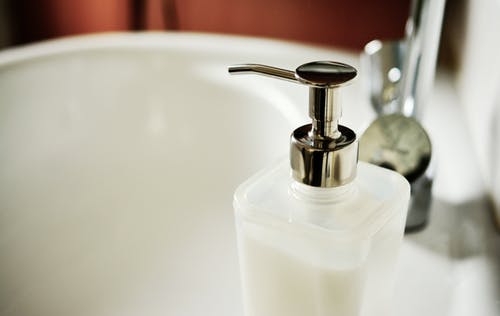When it comes to cleaning, healthcare offices are in a league of their own. The stakes are high, and the requirements are stringent. Why? The environment in a healthcare setting must not just appear clean; it needs to uphold the highest standards of hygiene to protect both patients and staff from potential infections and diseases.
In this article, we’ll dive into the specific cleaning services that are essential for maintaining a pristine healthcare office.
The Unique Demands of Healthcare Office Cleaning
Healthcare facilities are complex environments that require a dedicated approach to cleaning. Unlike general office spaces or retail locations, healthcare offices must adhere to strict protocols to ensure they are free of harmful bacteria and viruses. This is where healthcare office cleaning services come into play.
A Holistic Approach to Disinfection
Disinfecting surfaces in a healthcare office isn’t just a one-step process. It involves:
- Assessing the area to determine high-touch surfaces.
- Using appropriate cleaners and disinfectants that are effective against a wide spectrum of pathogens.
- Regularly sanitizing these areas to minimize the risk of cross-contamination.
A robust disinfection routine is integral to any healthcare office cleaning plan. This means scheduling frequent wipe-downs of everything from door handles to examination tables, ensuring that these areas are as germ-free as possible.
Attention to Detail: From Waiting Rooms to Workstations
In healthcare settings, every area deserves close attention. The waiting room, where patients spend a good deal of time, must be kept spotless, with magazines, chairs, and play areas (if any) regularly cleaned and sanitized. The workstations, where staff handle everything from medical records to prescription pads, also require thorough cleaning to prevent the transfer of germs.
Specialized Cleaning Techniques for Healthcare Environments
Cleaning a healthcare office involves more than just a mop and a bucket. It requires specialized techniques that go beyond the basics.
High-Level Sanitization
This goes hand in hand with disinfection but focuses on the use of high-grade sanitizers, particularly in areas like surgery rooms or places where invasive procedures are performed.
Medical Grade Equipment and Supplies
Professional cleaning services will make use of medical-grade cleaning equipment and supplies. This includes using hospital-grade disinfectants and tools like UV light sanitizers to provide an additional layer of protection against pathogens.
Compliance with Regulations
Healthcare offices must comply with various health and safety regulations. This means that cleaning services must be well-versed in guidelines from organizations such as OSHA (Occupational Safety and Health Administration) and CDC (Centers for Disease Control and Prevention), as well as any local health codes.
What Regulations Dictate
- Use of EPA-registered disinfectants.
- Proper disposal of medical waste.
- Compliance with bloodborne pathogen standards.
Failure to comply with these regulations can not only result in fines but also potentially endanger the health of patients and staff.
Training and Expertise of the Cleaning Staff
The cleaners who take on the responsibility of maintaining a healthcare office must be trained in specific protocols.
The Importance of Expert Training
Cleaners need to know how to:
- Properly handle cleaning chemicals.
- Dispose of hazardous waste according to guidelines.
- Use personal protective equipment (PPE) effectively.
It’s not enough to know how to clean; understanding the ‘why’ behind each protocol is vital to ensure the safety and cleanliness of the environment.
Regular and Responsive Cleaning Schedules
Healthcare offices often require more frequent cleaning than other types of workspaces. This means establishing a schedule that is both regular and flexible enough to respond to any immediate cleaning needs.
Adapting to the Healthcare Office’s Rhythms
A good cleaning schedule involves:
- Daily cleaning routines for general areas.
- More frequent attention to high-traffic and high-risk areas.
- Immediate action in the event of spills or other cleaning emergencies.
Being proactive and responsive are key traits of a good healthcare cleaning service provider.
Special Considerations During Flu Season and Pandemics
During times of widespread illness, such as the flu season or a pandemic, healthcare offices must ramp up their cleaning efforts.
Stepping Up When It Counts
This could mean:
- Increased frequency of disinfection rounds.
- Extra attention to communal areas.
- Distribution of hand sanitizers and informative posters on hygiene practices.
Incorporating Best Practices in School Environments
It’s not just healthcare facilities that need rigorous cleaning protocols. In school environments, there’s a similar need for thorough cleaning practices to keep students and staff safe. Schools can learn from the healthcare sector by investing in better cleaning equipment and supplies and by implementing a more scientifically-based approach to hygiene and sanitation.
Investing in Sustainable and Safe Cleaning Solutions
Sustainability is also a critical aspect of cleaning services in today’s world. Healthcare offices are increasingly looking for cleaning services that provide safe and eco-friendly options.
The Drive Towards Green Cleaning
This includes using:
- Non-toxic, biodegradable cleaning agents.
- Microfiber cloths and mops that require less water and chemicals.
- HEPA filters on vacuum cleaners to improve indoor air quality.
Conclusion
The maintenance of a healthcare office goes beyond aesthetics. It is about creating and sustaining an environment that promotes health and well-being first and foremost. Healthcare office cleaning services fill this crucial role with specialized knowledge, rigorous safety protocols, and a commitment to the highest standards of cleanliness.
For those looking to keep their healthcare facility in top-notch condition, it’s essential to invest in a cleaning service that understands the unique challenges and requirements of the healthcare industry. Through partnership with such experts, healthcare providers can ensure that they offer not only the best medical care but also a clean, safe, and welcoming environment for all.



